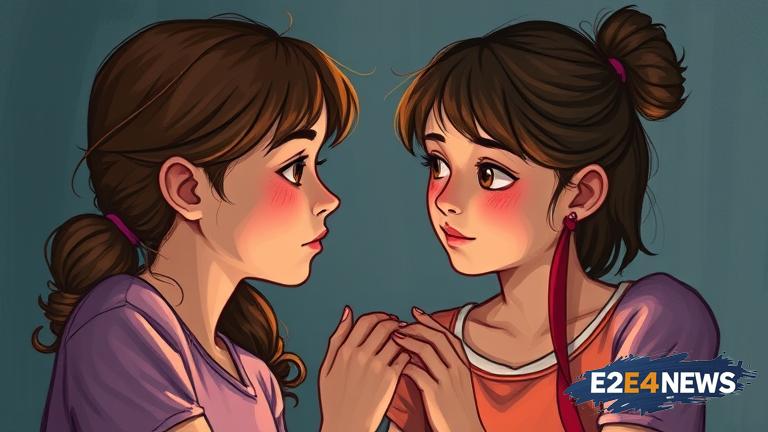A recent story has gone viral, highlighting the complex and often fraught nature of family relationships. At the center of the controversy is a teenager who has refused to donate a kidney to her half-sister, sparking a heated debate about the limits of familial obligation. The half-sister, who remains anonymous, is reportedly in dire need of a kidney transplant and has been searching for a compatible donor. The teenager, who is also anonymous, has been identified as a potential match, but has chosen not to undergo the procedure. The decision has been met with widespread criticism, with many accusing the teenager of being selfish and heartless. However, others have come to the teenager’s defense, arguing that she has the right to make her own decisions about her body and health. The situation has raised important questions about the nature of family and the extent to which we are obligated to help our loved ones. While some argue that family members have a moral duty to support each other in times of need, others believe that personal autonomy and individual freedom should take precedence. The debate has also highlighted the complexities of organ donation, which is often a difficult and emotionally charged process. Many people are unaware of the risks and challenges associated with donating an organ, and the decision to do so should not be taken lightly. Furthermore, the story has sparked a wider conversation about the importance of discussing and planning for end-of-life care and organ donation. As medical technology continues to advance, the possibilities for organ transplantation and donation are expanding, and it is essential that we have open and honest discussions about these issues. The teenager’s decision has also raised questions about the role of social media in shaping our perceptions of morality and ethics. The story has been widely shared and discussed on social media platforms, with many people weighing in with their opinions and judgments. However, this kind of public scrutiny can be damaging and unfair, particularly when it involves sensitive and personal issues like organ donation. Ultimately, the decision to donate an organ is a deeply personal one, and it is essential that we respect the autonomy and agency of individuals in making their own choices. The story serves as a reminder of the importance of empathy, understanding, and compassion in our relationships with others, particularly in times of need and crisis. It also highlights the need for greater education and awareness about organ donation and the importance of having open and honest discussions about end-of-life care. As we navigate the complexities of family, morality, and personal autonomy, it is essential that we approach these issues with sensitivity, respect, and understanding. The situation has also sparked a conversation about the importance of living donors and the need for more people to consider donating their organs. Living donors can make a significant difference in the lives of those in need of a transplant, and their generosity and selflessness should be recognized and appreciated. However, the decision to become a living donor should not be taken lightly, and it is essential that individuals are fully informed and supported throughout the process. The story has also raised questions about the role of family members in supporting each other in times of need. While it is natural to expect family members to be supportive and helpful, it is also important to recognize that everyone has their own limitations and boundaries. The situation has sparked a wider conversation about the importance of setting healthy boundaries and prioritizing one’s own needs and well-being. In conclusion, the teenager’s decision not to donate a kidney to her half-sister has ignited a heated debate about family, morality, and personal autonomy. The situation has raised important questions about the nature of family and the extent to which we are obligated to help our loved ones. While the decision has been met with criticism and judgment, it is essential that we respect the autonomy and agency of individuals in making their own choices. The story serves as a reminder of the importance of empathy, understanding, and compassion in our relationships with others, particularly in times of need and crisis.
